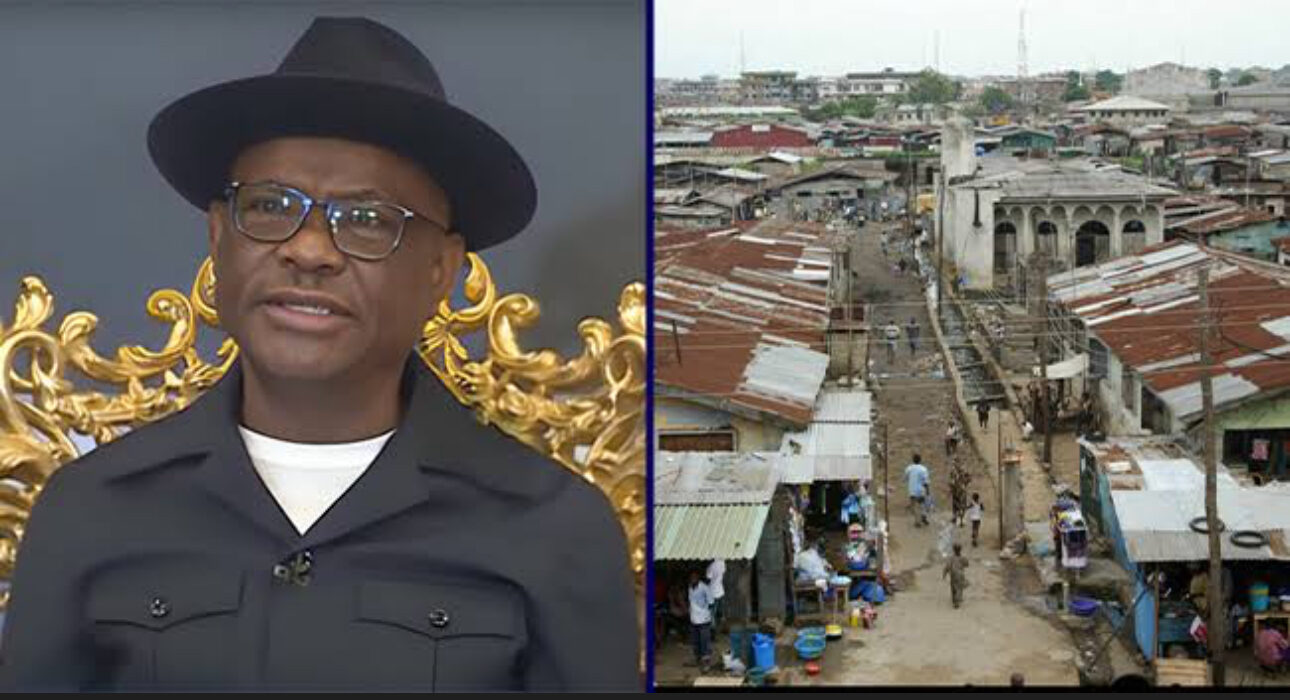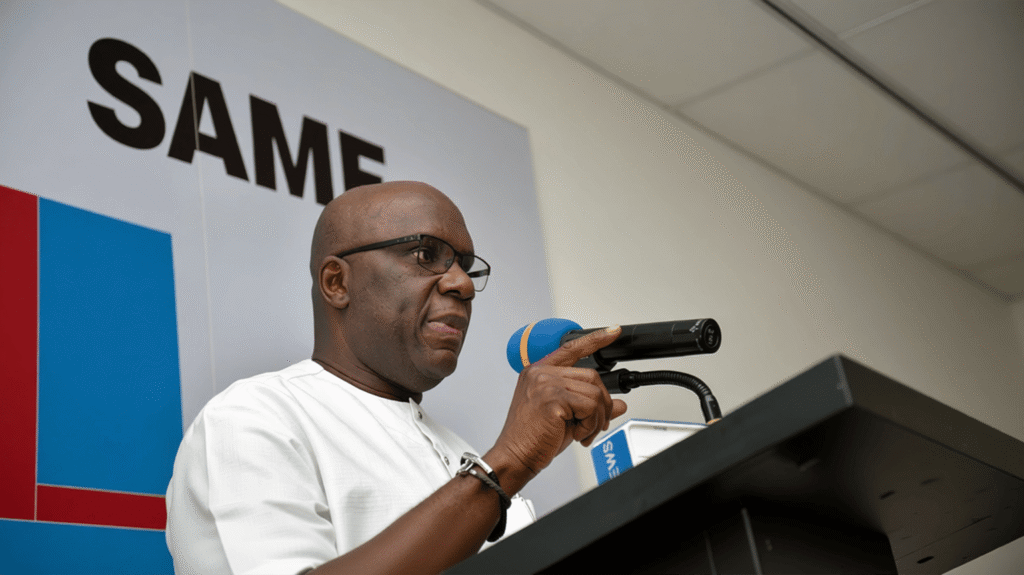Wike Insists on Demolition of Shanties in Abuja, Says Poverty No Excuse

The Minister of the Federal Capital Territory, Nyesom Wike, has reiterated his government’s commitment to removing all shanties across Abuja, insisting that poverty cannot be used as an excuse for people to occupy illegal settlements.
Speaking during an inspection tour of demolition sites in the Wuye area of the FCT, Wike maintained that the presence of unplanned structures and shanties posed serious security risks to the capital city.
According to him, many of the settlements serve as hideouts for criminals and are located dangerously close to critical infrastructure such as rail lines.
“No government worth its salt will fold its hands and allow this place to be occupied by hoodlums or people no one can account for. We have identified areas that pose security threats and we must act. No amount of blackmail or abuse will stop us from doing our job,” the minister said.
The FCT administration recently launched a ministerial task force, Operation Sweep, to oversee demolitions and ensure that illegal settlements do not re-emerge.
Wike stressed that the exercise was not targeted at any particular group but aimed at restoring order and safety within the territory.
His remarks, however, have drawn strong criticism from human rights groups and civil society organizations, who argue that the policy unfairly punishes poor and vulnerable people already struggling with housing challenges.
Amnesty International’s Country Director, Sanusi Isa, warned against what he described as an attempt to criminalize poverty, saying: “Many people are victims of years of corruption and failed policies.
Demolishing their homes without alternatives only deepens their suffering.”
Despite the backlash, Wike stood firm, insisting that the government would not compromise on security and urban planning standards. He urged residents of the affected areas to nominate representatives for dialogue but gave no assurance of resettlement or compensation.
The development has further ignited debate over Abuja’s urban renewal policies, with many calling for a balance between maintaining security and addressing the housing needs of low-income earners in the capital.









